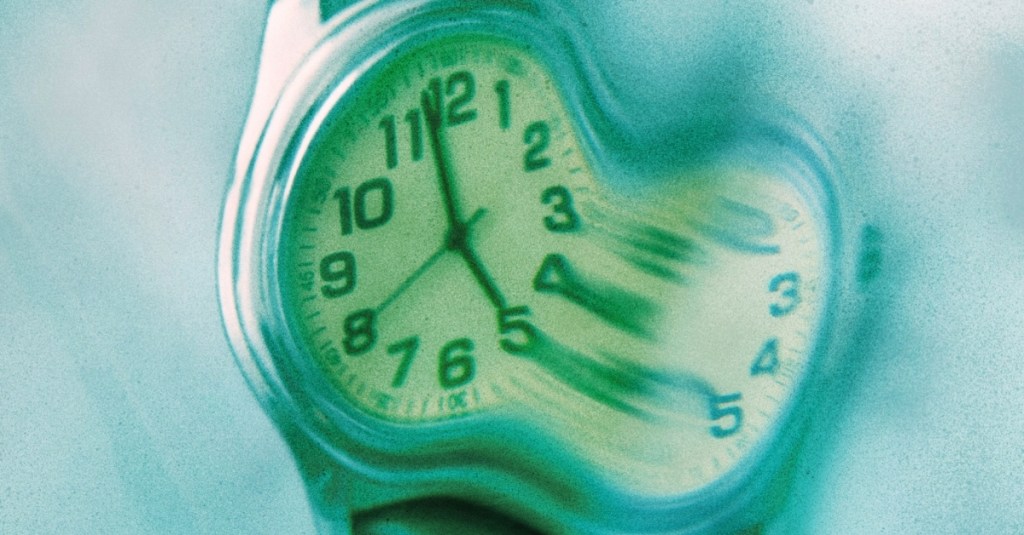Remember when a year in high school felt like an eternity, and now a year feels like it was just yesterday? Scientists say there’s a reason for that. A new study in Communications Biology suggests time doesn’t actually speed up; it only feels faster because of how our brains process experiences as we get older.
Researchers at the Cambridge Centre for Ageing and Neuroscience analyzed fMRI scans from 577 people between 18 and 88 while they watched an eight-minute clip from Alfred Hitchcock Presents. The scene, appropriately titled “Bang! You’re Dead,” was chosen because it makes almost everyone’s brain fire in sync. That consistency lets scientists study how people’s brains shift between moments of focus, or “neural states,” as a story unfolds.
Then, using a machine-learning model called the Greedy State Boundary Search, they found that older participants’ brains switched between these activity states less often. In plain English: the older the viewer, the fewer distinct “moments” their brain registered. “Longer and fewer neural states within the same period may contribute to older adults experiencing time as passing more quickly,” the researchers wrote.

New Study Reveals Why Time Feels Like It’s Moving Faster as We Age
Aristotle first suggested the idea that time feels longer when more notable events happen. If your brain is logging fewer mental “events,” your life’s highlight reel starts to blur together. Neuroscientists call this age-related neural dedifferentiation. It’s the process where the brain’s activity patterns become less distinct with age. Faces, objects, and moments all start to overlap, and it becomes harder to tell where one experience ends and another begins.
“It looks very plausible to me,” said Giorgio Vallortigara, a neuroscientist at the University of Trento who wasn’t involved in the study. “The idea that this may affect perception and memory in everyday life, including the feeling that subjective time seems to pass faster with age.”
But biology is just part of the story. Linguist Joanna Szadura from Maria Curie-Skłodowska University told Live Science that our perception of time also changes mathematically. To a five-year-old, a year is 20% of their life; to a 50-year-old, it’s 2%. The older we get, the smaller each year feels in proportion to everything that came before it.
The good news is that the clock isn’t completely out of your control. Study co-author Linda Geerligs of Radboud University said that new experiences, travel, and meaningful connections can make time feel richer and more expansive. Paying attention, trying new things, and staying curious may be the closest thing we have to slowing it all down.
The post This Is Why It Feels Like Time Speeds up as We Get Older appeared first on VICE.




